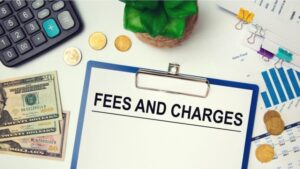How many personal loans can you have at once?
Having personal loans to fund your expected and unexpected costs come in handy. But without careful consideration, they can easily backfire. So, insight into how many personal loans can you have at once can help you control your finances and avoid potentially drowning in debt.
To comfortably manage your budget, we shed light on everything you need to know about having multiple personal loans.
How many personal loans can you get at once?
The number of personal loans you can have at once depends on several factors – your lender, existing debts, credit score, etc. Though there are no set rules on how many loans you can have, lenders may have their own limits. Other times, they may also hesitate to approve multiple loans especially if you already have substantial debt.
It’s not against the law to have several loans, but still, be careful of taking on excessive debt. Juggling many loans means numerous monthly payments. This then can strain your pockets and increase your risk of default if you’re not cautious. Plus, frequent loan applications can ding your credit score.
But if you face emergencies and borrowing funds is your only choice, pay attention to your financial capacity. Remember, managing multiple debts requires commitment. You should make on-time payments and never miss a due date, even just once, to avoid hurting your credit.
Do multiple loans affect your credit score?
Opening a new loan triggers a hard inquiry on your credit report. With this, applying for a new loan causes a drop in your credit score. So, multiple applications over a short period can severely impact your credit score.
The impact of loans on your credit varies based on how you handle them. Your payment history plays a significant role since it makes up 35% of your credit score. Say you’re consistent with making timely payments on multiple personal loans. This, in turn, can boost your credit score.
On the other hand, if you miss even just one payment, this can hurt your credit. Besides that, you may incur late fees. Lenders usually report late payments to credit bureaus if you are at least 30 days behind the due date. To counter this, consider setting up autopay, but ensure there are sufficient funds in your bank account to cover your payments.
Risks of having multiple personal loans
While helpful in certain circumstances, having several loans at once carries potential risks.
Additional monthly expense
Another personal loan on top of existing loans means extra monthly payments. When you allocate a big portion of your money to your debts, you have less to cover your other expenses. This then may strain your income and cause financial stress.
Beyond that, outstanding balances also leave you vulnerable to unexpected events – be it a drop in income, job loss, or other setbacks. Of course, you may have enough income to take on multiple payments now. But one incident can easily turn the tables.
Say you fall behind on your payments and resort to more loans to keep up. This can lead to a cycle of debt. So, ensure you have a financial cushion, and avoid overextending yourself with multiple loans.
Increases your debt-to-income ratio
Your debt-to-income (DTI) ratio measures your total monthly debts relative to your gross monthly income. Meaning the higher your DTI ratio, the more of your income goes to debt repayments.
With this in mind, having multiple personal loans pushes your debt-to-income ratio up. Since lenders use this ratio to gauge your ability to manage debts, a higher ratio raises concerns for lenders. In effect, this can make it difficult to qualify for future loans, whether it be mortgages, auto loans, credit cards, etc.
While they vary per lender and loan type, they typically consider up to a DTI limit of 43%. If your DTI ratio exceeds this range, it can make it more challenging to qualify for new loans or lines of credit. Other than that, even if you get approved with a high DTI ratio, you may face higher interest rates and less favorable terms.
Hurts your credit score
As mentioned, a new loan triggers a hard inquiry on your credit report. This means your credit score temporarily drops a bit. Though inquiries typically only make up 10% of your score, multiple inquiries within a short period can significantly impact your score. That said, lenders may view numerous hard inquiries as a sign of poor debt management.
Aside from that, if you fail to meet your monthly payments, this further hurts your credit score. So, before taking out a second personal loan, consider your credit standing and financial capacity first.
Rather than formally applying for multiple loans simultaneously, try to get prequalified from various lenders. Prequalification only requires a soft credit check, so this won’t affect your credit score. Through this, you can narrow down which lenders are likely to offer you a second loan, too.
How to get approved for a second loan?
If you apply with a second lender, they may require 3 to 12 monthly payments toward your current loan before approving you for another. They will then likely conduct a hard inquiry to assess your creditworthiness and review your payment history. Should you meet their eligibility criteria, you may then get approved.
To get more chances of loan approval, you need to show lenders that you have a positive credit history and make responsible payments. Also, ensure that your debt-to-income ratio doesn’t go beyond their requirements. So, try to pay down some of your outstanding balances to reduce what you owe.
If possible, you may consider a second job or a side hustle to increase your income, too. And as much as possible, avoid acquiring more debts before applying for another personal loan.
Alternatives to personal loans
When personal loans aren’t ideal for your situation, some alternatives are worth considering.
Savings
Try to save up instead of getting an additional personal loan. But if you need to finance an unexpected cost, you may consider using your emergency funds. That way, you avoid taking out another debt and paying interest charges.
Credit card cash advance
You may also think about getting a credit card cash advance in case you need quick funds, especially for emergencies. With this, you can get fast cash from a portion of your credit limit. However, cash advances typically have high interest rates and fees. So, unless it’s your only choice, try to avoid cash advances.
0% APR credit cards
Credit cards have flexible borrowing options when you don’t have a specific amount in mind. If you have good credit, you may qualify for 0% APR credit cards, too. With a 0% APR credit card, you can avoid interest payments if you settle your debt within the promo period. Still, be wary of the APR that applies after the introductory period ends.
Home equity loans or home equity lines of credit (HELOC)
If you’re a homeowner with enough equity, you may get a home equity loan or a home equity line of credit (HELOC). Home equity loans and HELOCs allow you to borrow against your equity. With a home equity loan, you then get a lump sum once you’re approved. On the flip side, a HELOC offers you a revolving line of credit.
Both options usually have lower interest rates than personal loans because your home secures the loan. Nonetheless, weigh the risk of foreclosure if you default on the loan.
Payment plans
For medical expenses or high veterinary bills, ask about payment plans with the providers. Many medical professionals offer installment options to pay off your bills. This way, you won’t have to get a personal loan.
In terms of furniture and appliances, you may also opt for in-store financing rather than a personal loan. Buy now, pay later loans help you buy big-ticket items in installments.
401(k) loans
You may consider borrowing against your current 401(k) plan if you have enough funds in it. Though the interest you pay goes back into your investment plan, it’s generally not ideal to tap into your retirement savings.
One major drawback is you may need to pay the full loan amount if you leave your job. Plus, it’s also possible to incur taxes and penalties on it.
The takeaway
Having multiple loans can provide temporary relief. But in the end, you have increased debt, more monthly expenses, and a higher debt-to-income ratio. Without proper planning, this can knock down your budget and affect your credit. Assess your existing personal loan and alternatives before getting additional loans. This way, you can have the upper hand in your financial situation.
Frequently asked questions
How long should you wait between personal loans?
In terms of waiting between personal loans, some lenders typically require a period of 3 to 12 months. This means you need to make 3 to 12 monthly payments toward your first personal loan before becoming eligible for a second one. However, just because you can get another loan doesn’t mean you should. Carefully evaluate your budget and options first.
Does getting a small personal loan hurt your credit?
No matter how small your personal loan is, a new loan impacts your credit score. Whether you apply to banks, credit unions, or online lenders, they will conduct hard inquiries. Each hard pull then slightly decreases your credit score. While this is temporary, make sure you make timely payments on your loan so that your score can gradually go back up.
How many are too many loans?
Determining the appropriate number of loans depends on several factors. But one way to evaluate if you still have reasonable loans is through your debt-to-income ratio. To get this ratio, add all your monthly payments and divide it by your gross monthly income. Then, multiply it by 100 to get the percentage.
If your DTI ratio is 36% or less, this means your level of debt is still manageable. However, if this goes beyond 36%, this indicates that you may struggle with your debt payments.
Carla is a skilled copywriter at BestFind with a background in marketing and communications. She specializes in reviewing personal loan and finance products to help readers navigate the complex world of personal finance.
Latest posts

What is debt consolidation, and does it hurt your credit?
04.07.2023

What is an auto loan origination fee?
05.07.2023

What is a personal loan origination fee, and can I avoid it?
04.07.2023
